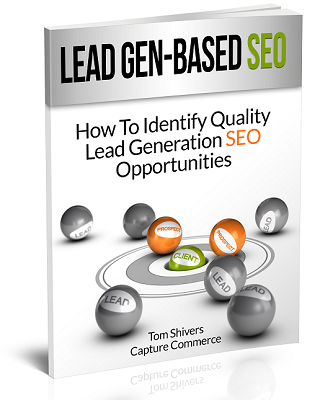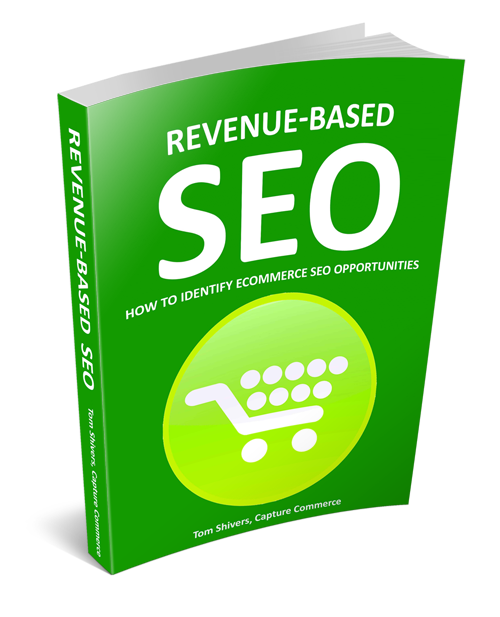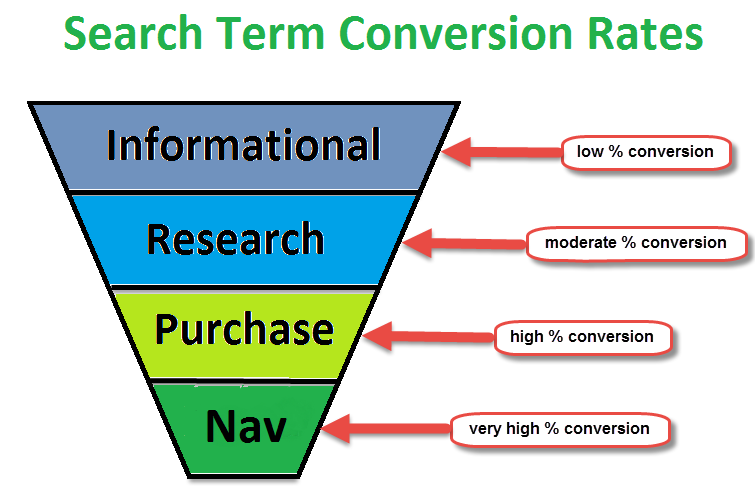Last updated on February 27th, 2020 at 01:44 am
Targeting the right search terms can take your business to the next level, but how can you be certain that the keywords you are going for (either paid search or SEO) get more results?
In this post I’m going to walk you through a high-level way to evaluate the intent of a searcher so you can create content that satisfies that person and delivers business results. My goal is to help you:
- Sell products (ecommerce stores)
- Generate quality leads
- Grow email lists
- Build brand name awareness
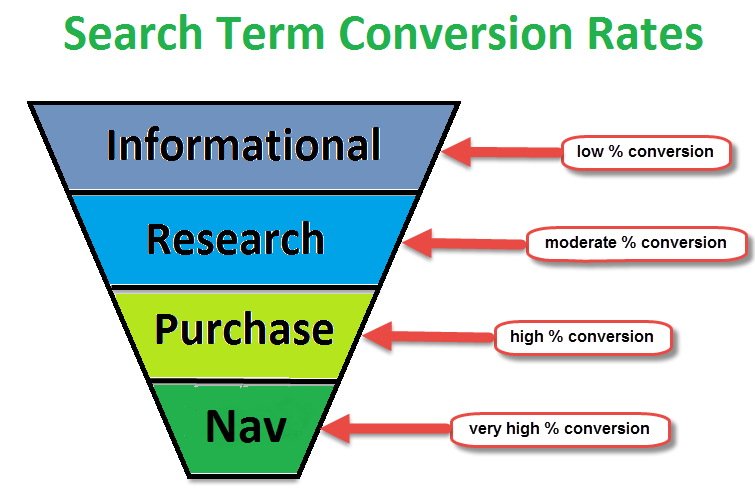
[bctt tweet=”Keyword research is important but today searcher intent is key – the real reason for searching”]
Keyword research is important but today searcher intent is key – the real reasons behind the search term. According to Grant Simmons, Google attempts to match that intent based on search data, click data, and heuristics, and then serves richer (and hopefully more relevant) intent-based results.
Most people have one or more of these four aims when searching:
- Informational
- Research
- Purchase
- Navigational
Informational intent searchers can be a gold mine with the right content marketing strategy
 The majority of people use search engines to find info and once they get it they move on – using search as an answer engine. Google’s Knowledge Graph was launched in 2012 to help users resolve their query without having to navigate to other sites and assemble the information themselves.
The majority of people use search engines to find info and once they get it they move on – using search as an answer engine. Google’s Knowledge Graph was launched in 2012 to help users resolve their query without having to navigate to other sites and assemble the information themselves.
A study done by Mediative in 2014 revealed that people tend to spend more time looking at the Knowledge Graph when it is relevant to their search. In most cases I would avoid informational keywords that trigger the Knowledge Graph.
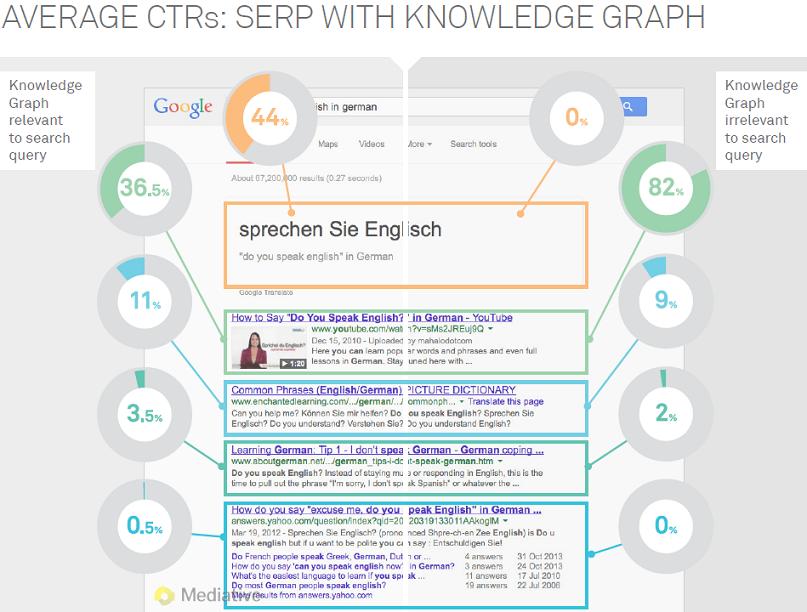
Although conversion rates from informational searchers are low and not great for product sales or lead gen, being found by information seekers can be valuable if it results in growing your email list, brand name awareness or as part of a content marketing strategy that earns quality links to your site and/or gets shared and social media followers. But if you are not getting value from content created to satisfy an informational searcher, it becomes a time and resource suck.
For example, a number of years ago I created a brief tutorial on the SEO process – and I update it from time to time. It usually ranks on the first page of Google and other search engines for “SEO process.”
What’s interesting is the tutorial has been shared in social media well over 2000 times and has earned some reputable links. I simply tap into the desire for a quick but quality answer to a question that lots of people ask about my industry and turn it into a way to promote my brand via social media and link earning – an informational intent win-win for my business.
I’ve never come across a business that could not take advantage of information opportunities, but you’ve got to know what people are curious about and how to pitch it to them. Consider these info intent search terms:
- How _____ works
- Best/Top selling _____
- Best _____ of 2015
- How much money can you make from _____
- Future of _____
- How to install/repair _____
- Most popular _____
Comment below or email me your business and I’ll send you 3 informational intent content opportunities for free.
Research intent searchers want to make an informed decision
 Conversion rates from research intent keywords are moderate and may be worth targeting for product sales, lead gen, growing your list and brand name awareness.
Conversion rates from research intent keywords are moderate and may be worth targeting for product sales, lead gen, growing your list and brand name awareness.
People in research mode are trying to make an educated decision about their specific situation. They may or may not have a good referral from a trusted source to help them in their quest to solve the problem or get to their goal, so they search for help.
If your sales cycle is short consider these types of research intent:
- “I want to reduce my risk by getting a taste of it before buying.” Setup a Demo or Free Trial.
- “I want to see what other customers or clients say first.” Make it easy to find Reviews or Ratings.
- “I want the Best or Top of the line.” Demonstrate the uniqueness of your business to those who are competitive or spontaneous decision makers with documented results especially from a third party, endorsement from a well-known individual or business…
- “I want an objective Comparison.” Demonstrate the uniqueness of your business to those who are methodical decision makers with plenty of before and after data, how we do it info or resources that establish your name or business as an authority.
- “I want to help my family or community.” Demonstrate the uniqueness of your business to those who are humanistic decision makers with plenty of “feel good” stories, show how your business is supporting a cause or how your mission aligns with a cause that your target audience supports.
- “Help, I need a Guide.” Provide a buyer’s guide or “how to get started” tutorial for people who are new to the way your business works.
Consider these research intent words often used in search terms:
- Comparison
- Free trial
- Demo
- Reviews
- Ratings
- Best/Top
- Help/Guide
- Tutorial
[bctt tweet=”Research intent words used in search terms: comparison, free trial, demo, reviews, best/top, tutorial”]
A client who provides service to the Dallas-Fort Worth area wanted a way to rank well in their local area. I implemented local SEO including a platform that makes it easy for customers to review their company and automatically posts those reviews to the various city pages I created.
Before: a handful of good reviews per year
After: 15+ positive reviews per month!
If you’re keeping track that’s some serious increase! The city pages rank well in Google for the service they provide plus the city name and the average 5 star rating is clearly visible in the search results. Researchers find it hard not to click on my client’s links when they search.
If your sales cycle is long consider these types of research intent:
- “I want the latest ideas and to ask questions from an expert without having to buy yet.” Provide a Webinar, live Q&A forum, expert articles or interviews.
- “I want to read about the latest ideas as I have time.” Provide an Ebook or Whitepaper.
- “I want to know how to engage this company’s services.” Provide access to the RFP process.
- “I want to see Case Studies.”
- “I want to read Customer Reviews.” 88% of consumers say they trust online reviews as much as personal recommendations according to the latest BrightLocal Study, so consider search terms that include reviews, best, rating, top, etc.
- “I want to know what the latest Research reveals.” Provide access to relevant research topics.
- “How good is customer support?” Provide proof of your company’s credibility in a way that you have not done before and make it easy for customers to find help fast.
- “How reliable is tech support?” Provide proof that tech support’s problem turn-around time is getting lower or just solve problems ASAP.
Consider these researcher words often used in search terms:
- Webinar
- Expert
- Forum
- Interview
- Ebook/Whitepaper
- RFP
- Case study/success story
- Reviews
- Research
- Customer support/service
- Tech support
One client sells and services high-end equipment to other businesses. When I learned that his competitors did not provide the same kind of quality service after selling the same equipment, my team created a number of resources to attract those who must service their own equipment. One resource we created was access to tech support videos to help technicians out in the field (using a mobile device).
These resources are free, solve common problems and tease users with the quality of service that comes with purchasing that equipment from my client. What’s cool is people who use them are highly qualified leads for my client – the sales team gets hundreds of names, emails and phone numbers out of it.
Purchase intent searchers are ready to buy
 Conversion rates from purchase intent keywords (a.k.a. commercial intent) are high and worth targeting for product sales and lead gen.
Conversion rates from purchase intent keywords (a.k.a. commercial intent) are high and worth targeting for product sales and lead gen.
People in purchase mode have decided to buy and may only want to know how or where to buy so don’t make them think or try to find what they are after when they land. They often use search terms that include words like:
- Buy
- Purchase
- Order
- Lease
- Rent
- For sale
- Product name, SKU
Purchase intent people are concerned with things like:
- “I want to know about shipping and delivery before buying.” Make it easy to get a shipping estimate and expected time of arrival.
- “I want privacy and security.” All transaction detail requests must be on an https URL and provide easy access to your privacy policy.
- “Is this company trust worthy?” Provide positive ratings, reviews, testimonials, social proof, awards, endorsements, etc.
- “Yes, but I’m not sure yet.” Provide guarantees to remove lingering doubts, fears and speculations about getting started now.
- “Am I going to regret this purchase later?” Demonstrate proven results with excellent customer service, tech support and other signs of credibility.
Navigational intent searchers want to find your website
 People often use search engines to find specific websites and company’s and rather than typing the domain in the address bar of their web browser they simply search Google for it – these are navigational search terms.
People often use search engines to find specific websites and company’s and rather than typing the domain in the address bar of their web browser they simply search Google for it – these are navigational search terms.
Conversion rates from navigational intent keywords are very high and worth targeting for product sales, lead gen and brand name awareness.
People who are trying to find your specific site from a search engine are often in purchase or research mode – some are previous customers who want to buy again. If your site is not ranking at the top of Google, Bing and other search engines for the name of your business, you have a real problem that should be fixed ASAP.
Rank monitoring intent
Have you ever spotted a keyword in research that had very high search volume but brought very little traffic or most of the traffic merely hit your page and left? This is a sign of an inflated keyword volume from people who are monitoring search rankings.
This problem is not part of every industry but some industries are more prone than others. In some cases, you’ll see bidding wars for the top paid ad for the keyword.
These keywords may or may not be valuable, so beware.
In Conclusion
People who are searching for your business name should be your first concern when it comes to SEO. Make it easy for them to find your site before working on purchase intent search terms, then move up to research intent and finally to informational intent search terms to get the most out of SEO and paid search.
Keyword research is still important but don’t overlook intent research – a step beyond relevance. Although some intent is implied based on the actual search term, it makes sense to listen to the way customers and prospects ask for things related to your business at each stage along the buyer’s journey.
Make a list of the intentions of your customers and ideal prospects and categorize them in one or more of the above four intentions of searchers, then map out each intent to a short list of keywords and insure that the content aligns with that intent. Identify and fill the intent to content gaps.
